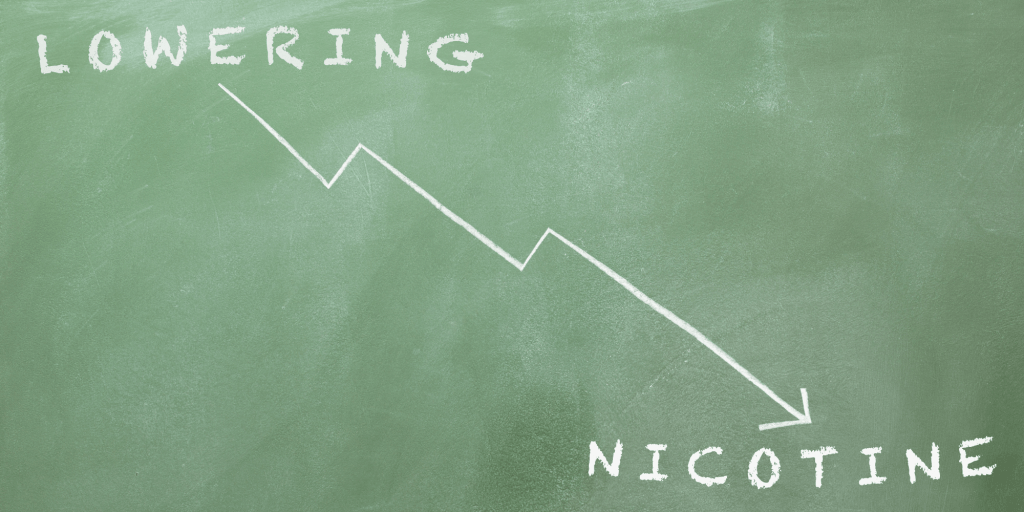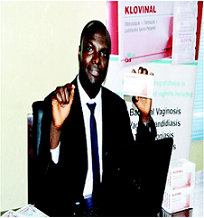A herbal preparation made predominantly with garlic, ginger, onions, scent leaf, lemon grass, unripe pawpaw, lime/lemon, African pepper (Uda in Igbo), clove, Gongronema latifolium (Utazi in Ibo, arokeke in Yoruba) and West African Black pepper (Uziza in Igbo) has been effectively used to stop malaria and typhoid. CHUKWUMA MUANYA (Assistant Editor) examines the claim.
“I used to have at least five bouts of malaria and typhoid fever in a year. In most cases I have to stay three days to two weeks either at home or hospital to fully recover,” said 43-year-old Azubuike Nnaemeka.
Nnaemeka, married with four children, said the last time he had to treat malaria with conventional drugs was twelve years ago. “The last time I was bedridden with malaria and typhoid was in 2004 before my wedding. I stopped my herbal concoction so that it would not affect the results of my premarital medical tests. But it was at a great cost. I was hit by serious fever. Laboratory examination showed that I had malaria and typhoid. I stayed three days at the hospital. By the time I finished the drugs and injections I was given, I was still not feeling well. I had a relapse,” Nnaemeka said.
“I had to go back to my herbal concoction,” he added. “My wife helped me this time. I asked her to buy enough quantity of garlic and ginger, which are the main constituents of the concoction. Then four big bulbs of onions, twigs of scent leaf, one big unripe pawpaw, 10 to 20 pieces of lime/lemon fruit, a bunch of lemon grass, ten fingers of West African Black pepper (Uda in Igbo/Xylopia aethiopica), a bunch of cloves, 20 leaves of utazi and 20 leaves of uziza,” he said.
How is it prepared? “Wash each material in clean water and put everything in a big pot. Pour in clean water to cover the herbal combination. Put on fire and boil. When it gets to boiling point allow it for another ten minutes. Do not cook because it will destroy the active ingredients. Take about 15 centilitres (CL) that is half bottle of coke four times daily for five days. Each time you take the decoction, replay with the same quantity of clean drinking water and boil again,” he said.
Is there scientific evidence to support these claims?
A study published in Malaria Journal, titled “Whole plant extracts versus single compounds for the treatment of malaria: synergy and positive interactions,” noted: “In traditional medicine whole plants or mixtures of plants are used rather than isolated compounds. There is evidence that crude plant extracts often have greater in vitro or/and in vivo antiplasmodial activity than isolated constituents at an equivalent dose.”
Garlic and malaria
Several studies have shown that malaria infection is initiated when Plasmodium sporozoites (malaria parasite) are injected into the skin of a vertebrate host by an infected female anopheles mosquito. The sporozoites enter the bloodstream and travel to the liver, where they invade hepatocytes, differentiate, and divide asexually to produce exoerythrocytic forms. Upon maturation, exoerythrocytic forms rupture and release merozoites that invade erythrocytes and initiate the blood stage of infection, which is responsible for the symptoms of the disease.
The anti-infective properties of garlic have long been known to Chinese and Indian civilizations and were first described in Europe by Louis Pasteur. Garlic has an unusually high concentration of sulphur-containing compounds, and its antibacterial properties are largely due to one particular class of sulphur-containing compounds, the thiosulphinates.
According to a study published in the journal Antimicrobial Agents Chemotherapy, the thiosulphinate structure [S(=O)S] appears to be essential for the bactericidal, antifungal, and antiprotozoal properties of garlic, likely reacting with SH-containing enzymes of these pathogens. Allicin is the most abundant thiosulphinate found in garlic and is generated when the enzyme alliinase reacts with its substrate alliin. Enzyme and substrate are located in different compartments of the clove, so that allicin is generated only when the clove is crushed. Many lines of evidence indicate that allicin is primarily responsible for garlic’s anti-infective properties, although studies have also found that ajoene, a metabolite of allicin found when garlic is crushed specifically in oil, also has some antibacterial properties. In fact, one study found that ajoene has an inhibitory effect on the erythrocytic stages of Plasmodium falciparium (malaria parasite).
The study published in the journal Antimicrobial Agents Chemotherapy found that when malaria parasites (sporozoites) were treated with allicin (the basic constituent of garlic) before injection into mice, malaria infection was completely prevented.
The study titled “Antimalarial Activity of Allicin, a Biologically Active Compound from Garlic Cloves” noted: “… We also tested allicin on erythrocytic stages and found that a four-day regimen of allicin administered either orally or intravenously significantly decreased parasitemias and increased the survival of infected mice by 10 days. Together, these experiments demonstrate that the same cysteine protease inhibitor can target two different life cycle stages in the vertebrate host.”
The researchers concluded: “In conclusion, we have shown that allicin, a cysteine protease inhibitor present in freshly crushed garlic cloves, significantly inhibits sporozoite infectivity in vivo and decreases parasite loads in mice with blood-stage infections. These experiments demonstrate the feasibility of using the same cysteine protease inhibitor to target two different life cycle stages in the vertebrate host and support the idea that cysteine protease inhibitors may be useful drugs for the prophylaxis and treatment of malaria.”
Garlic and typhoid fever
Researchers from the Department of Microbiology, Federal University of Technology, Akure, Ondo State, have investigated the effect of consumption of garlic (Allium sativum) in treating Salmonella typhi (causative agent for typhoid fever) infection and on the gastrointestinal flora and hematological parameters of rats.
The study published in African Journal of Biotechnology found: “Crude garlic extract inhibited the growth of S. typhi on agar plate with a zone of inhibition averaging 23.8 mm in diameter using the agar diffusion assay. This inhibition was superior to that of all the conventional antibiotics used except streptomycin, which gave a growth inhibitory value of 24.0 mm. In the in vivo assay, although, pretreatment with the extract did not protect rats orogastrically dosed with the infective dose of S. typhi from the infection, the consumption of crude garlic extract however, caused a significant reduction in the number of S. typhi in the feaces of the infected rats from 2.0 x 108 to 9.0 x 101cfu/ml and also reduced the duration of infection from five to three days.
“On the effect of consumption of garlic extract on the type and load of gastrointestinal flora and hematological parameters of rats, garlic extract caused a significant reduction in the type of bacteria present in the gastrointestinal tract of rats fed 1 ml daily for seven weeks from six microbial types to one microbial species, reduction in microbial load of the flora from 1.64 x 1012 to 1.3 x 107cfu/ml, reduction in packed cell volume (PCV), total white blood cells (WBC) and lymphocytes counts but caused an increase in neutrophils and monocytes counts of the rats. The observed increases in the neutrophils and monocytes counts of the blood suggested that garlic might possess immune-stimulatory effect in addition to its antibacterial effect.”
Ginger
Several studies have shown that ginger reduces nausea and vomiting of pregnancy and the severity and duration of chemotherapy-induced nausea/emesis and prevention of motion sickness.
A Chinese study published in PubMed and Zhongguo Zhen Jiu found that when forty-two cases of malaria were treated with ginger-partitioned moxibustion in the Republic of Congo; thirty-one cases were cured, eight cases improved and three cases failed. The effective rate was 92.9 per cent.
A review on ginger (Zingiber officinale): Pre-clinical and clinical trials published in Indian Journal of Traditional Knowledge concluded: “The efficacy of ginger has been established by results of various pre-clinical and clinical trials in different conditions carried out in different centres. Proper double blind clinical trials with standardized extract containing gingerols and other active ingredients present in extract need to be undertaken to confirm its efficacy in various conditions. These studies would give a special place for ginger product as a digestive, anti-emetic, anti-arthritic/anti-inflammatory, anti-platelet aggregation and in parasitic infection in future.”
Dr. T.E. Ayogu of the Department of Food Technology, Institute of Management and Technology and Dr. E.S. Amadi of the Department of Applied Microbiology, Faculty of Applied and Natural Sciences, Ebonyi State University, reported that raw ethanolic extracts of Allium sativum and Zingiber officinale have inhibitory activity against the Salmonella typhi.
The study published in The Internet Journal of Third World Medicine is titled “Studies On The Antibacterial Activities Of Medicinal Plants On Typhoid Fever Organism.”
The researchers wrote: “The result of this study showed that of all the raw extracts screened, only that of garlic exhibited inhibitory activity against the test organism. This is in conformity with the work of Gomaa and Hashish (2003), in which the inhibitory property of fresh garlic on the growth of some microorganisms including S. typhi was reported. They discovered that water extract of garlic produced higher antimicrobial reduction than the fresh ones. In the present study however, the aqueous extracts of garlic did not show any inhibitory property against the test organism. Although the reason for this variation is not very obvious, the probable differentiation in the garlic species and microbial strain could be responsible. The antimicrobial activity of garlic extract against S. tyhi has also been reported by other workers (Iwlokun et al., 2004; Arora and Kaur, 1999; Ekwenze and Elegalam, 2005).
“The result of the present investigation emphasizes the usefulness of Allium sativum (garlic) in the treatment of diseases and the need to enhance its exploitation in this regard. This is particularly of urgent interest considering the rate of multi-drug resistance strains of organisms including S. typhi currently emerging world-wide (Prescott et al., 2005). Also observed in this work was that only the ethanolic extract of ginger was able to produce inhibitory activity against the test organism. In addition to highlighting the importance of extraction solvents, it also adds ginger to the list of potential plant materials possessing inhibitory property against typhoid fever organism. In fact, the ethanol extract of ginger at 0.8g/ml concentration produced higher inhibition zone diameter (IZD) than the garlic extract. The inhibitory property of ginger against S. typhi, E. coli and B. subtilis has been demonstrated by Azu and Onyeagba (2007)….”
Scent leaf
Botanically called Ocimum gratissimum, scent leaf or Basil belongs to the mint family Lameacea. It is called effirin in Yoruba and nchuanwu or arigbe in Ibo.
Scent leaf is commonly used in cooking due to its minty aromatic flavour. Traditionally, Ocimum gratissimum has been used for the treatment of headache, diarrhoea, wart worms and kidney infections. The leaves of the African varieties of Ocimum gratissimum are said to contain thymol oil, which has been found to be highly antiseptic and also used to prevent mosquito bite.
Pawpaw
Commonly called pawpaw or papaya, Carica papaya belongs to the plant family Caricaceae. In Nigeria, it is also known by different local names depending on the tribe. For example, it is known as Ibepe in Yoruba, gwanda in Hausa, ojo and okwere in Igbo, and etihi- mbakara in Efik.
Different parts of the plant are attributed with different medicinal values. For instance, in African folklore medicine, the hot infusion from the boiled green leaves of papaya combined with leaves of Azadirachta indica (Dogonyaro), Cymbopogon citratus (lemon grass), Psidium guajava (guava) and stem bark of Alstonia boonei is drunk as one wine glass full three times daily in the treatment of malaria.
The extracted product apart from being used in malaria therapy is used to treat amoebicide, antihelmintics and as a carminative in local villages and towns.
A 2013 study published in Journal of Medicine and Medical Sciences noted: “… The fresh leaves Carica papaya is also efficacious in the treatment of gonorrhea, syphilis and amoebic dysentery. The whitish sap of the unripe fruit is a potent abortificant, anti-helminthic for roundworms, stomach disorders and enlargement of liver and spleen. The seeds are also effective as a vermifuge and are very useful in the treatment of hypertension, diabetes mellitus and hypercholesterolemia.
“Results from investigations on the biological activities of Carica papaya parts, extracts and isolated compounds showed that the latex and root extracts inhibited Candida albicans while extracts of pulp and seeds showed bacteriostatic properties against Staphylococcus aureus, Escherichia coli, Salmonella typhi, Bacillus subtilis, and Entamoeba histolytica, in vitro. Its root aqueous extract has equally been shown to have purgatory effect….”
Lemon grass
Commonly called lemon grass, Cymbopogon citratus belongs to the plant family Graminae. To the French it is citronelle, citronella in Portuguese. In Nigeria the Edos call it eti; Efik, ikon eti; Hausa, tsauri; Ibibio, myoyaka makara; Igbo (Owerri), achara ehi and Yoruba, kooko oba.
Until now, lemon grass is used in different parts of the world in the treatment of digestive disorders, fevers, menstrual disorder, rheumatism and other joint pains. The essential oil of the plant is used for the treatment of skin diseases.
Lime/lemon
Several pharmacological properties have been attributed to various members of the citrus species, ranging from anticancer, antimicrobial, antifungal, anti-typhoid, antioxidant, anti-inflammatory, antiulcer, hypo-lipidemic, hepatoprotective and antidiabetic, among others.
The peels of the citrus fruits, especially grapefruit and bitter orange (lime and lemon), which are rich in flavonoid glycosides, polyphenols and volatile oils have been used in several cultures for weight control, amongst other pharmacological uses.
Previous studies have demonstrated the effects of these flavonoids on lipid and glucose metabolism in experimental animals and humans, specifically on lipid catabolism, glucose transport, the insulin-receptor function, and peroxisome proliferator-activated receptors (PPARs) activation, all of which play essential roles in weight control.
African pepper
Xylopia aethiopica, commonly called African pepper or Guinea pepper belongs to the family Annonaceae. In Nigerian Arabic, it is called kyimba in, kumba in Arabic-Shuwa, kenya in Bokyi, akada in Degema, unie in Edo, ata in Efik, kimbaahre in Fula-Fulfulde, kimbaa in Hausa, ata in Ibibio, uda in Ibo, tsunfyanya in Nupe, kimbill in Tera, eeru in Yoruba.
The plant is also used in decoction to treat dysentery, bronchitis, ulceration, skin infection and female sterility.
Chukwuma Muanya
The Guardian






























